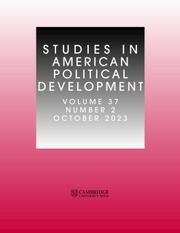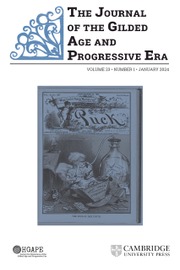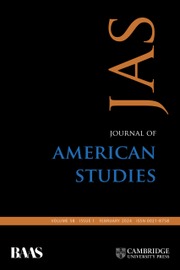Caring for Mom and Dad
Throughout the twentieth-century, the United States implemented social policies targeting the needs of dependent parents – parents who were no longer able to work but lacked sufficient financial resources to support themselves. These parent dependency policies either encouraged or required family members, particularly adult children, to provide support as an alternative to government benefits. Debates over how best to support aging parents centered on conceptualizations of dependency and the moral obligations family owed their parents. Measures of dependency often inhibited aging Americans' access to benefits they needed, focusing instead on ensuring that they were, in fact, dependent and that other family resources were not available. Susan Stein-Roggenbuck highlights this understudied aspect of the modern US welfare state, highlighting the limited support provided to aging parents and the hardship they and their adult children endured in the efforts to minimize public expenditures.
- Details the experiences and voices of both aging parents and their children
- Analyzes how family obligations and notions of “the taxpayer” shaped considerations of family support requirements and dependency
- Sheds light on the various policies at the local, state, and federal levels that are directed at aging parents who face financial need
Reviews & endorsements
‘With threats to Social Security and Medicare/Medicaid on the horizon, Susan Stein-Roggenbuck explains why we all should care about a heteronormative family policy that has deprived dependent elders of dignity and financially burdened those who care for them out of love or obligation. Caring for Mom and Dad shows the limits of both social assistance and tax policy for welfare justice when federalism reinforces inequality.’ Eileen Boris, co-author of Caring for America: Home Health Workers in the Shadow of the Welfare State
‘In this extraordinarily insightful and carefully researched book, Susan Stein-Roggenbuck probes beneath the widespread acceptance of ‘dependent’ aged Americans to reveal deep disagreements about whom those Americans ought to depend on first: their family or the state. The conflicts and unstable resolutions that Stein-Roggenbuck documents have a compelling human dimension, but they also have much to teach us about the complex role of social welfare law and administration in American governance. In illuminating this important and understudied topic, Stein-Roggenbuck offers vital insights for both historians and for present-day policymakers.’ Karen Tani, author of States of Dependency: Welfare, Rights, and American Governance, 1935–1972
‘Public policy researchers will benefit from this thorough research and its ample examples … Recommended.’ N. Zmora, CHOICE
Product details
October 2023Hardback
9781009203289
264 pages
235 × 158 × 20 mm
0.5kg
Available
Table of Contents
- Introduction
- 1. Resisting a right to relief: states, responsible relative laws and old age assistance
- 2. 'This responsible relative racket': contesting family support obligations
- 3. Aging parents and survivor benefits: the challenge of proving dependency
- 4. Taxing rewards: parent dependency and American tax policy
- Conclusion.









